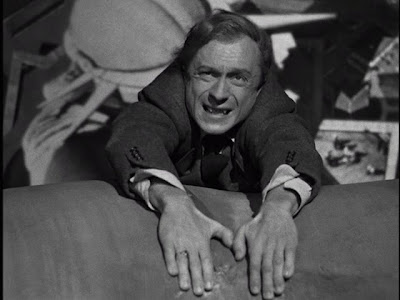
The historical epic is an established film genre, although scarcely a popular one in its own right. (I'm not talking about things like Dr. Zhivago or Gone With The Wind which use historic events merely as a backdrop for cheesy romantic melodrama. I mean films which attempt to actually explain and interpret history, like the million-megaton bomb Reds.) Film is not built to do history very well. Significant historical events incorporate so many diverse elements, politics, economics, social conditions, cultures, geography, etc., etc., that film, with its natural drive for narrative, and especially visual narrative, rarely helps anyone understand the causes and meanings of history.
(Similarly, epic biographies rarely work on film, because truly significant lives are not stories or novels, but anthologies of stories. Too many films, like Chaplin or The Aviator, are too eager to get too many stories in, rather than deciding on a simple, telling story. It's the difference between the compelling Motorcycle Diaries, an adventure of Ernesto Guavera before he became the famous "Che" and the overblown Che by Steven Soderbergh, a 5-hour epic that tries to tell Everything You Need To Know About Che.)
I must have seen at least a dozen films about armed conflict in Ireland, including Michael Collins, The Crying Game, The Rising of the Moon, The Informer, The Plough and the Stars, Hidden Agenda, Shake Hands With The Devil...the list goes on. So I began watching The Wind That Shakes The Barley (2006) with a little trepidation about sitting through some more historical medicine that would be good for me, but not taste very good.
It was a pleasure to be so wrong. Not only was the film clear (a huge accomplishment in any film about Irish politics) and even-handed (no straight-up heroes or villains, just people caught on different sides of a regrettable conflict), but beautiful to look at. The visuals seem to be more "caught" than composed, yet they are balanced and telling. Evidently director Ken Loach does not storyboard or use focus marks, but eschews faux-documentary shaky-cam. His operators just have a knack for identifying where the heart of the scene is taking place.
You can read attacks on the film's historical accuracy. But that would be like complaining about the historical details in Henry IV, Part 2. Because Loach and screenwriter Laverty have done just what Shakespeare did, and personified an historical divide into believable individual characters. At the beginning, when the Irish are involved in a revolution against England, activist brother pulls doctor brother into the conflict. Then, when the English craftily transform the war from a revolution against them into a civil war among the Irish, the activist brother becomes defender of the new status quo, while the doctor maintains his revolutionary stance. In the end, one must kill the other. Shakespearean, like I said. And like Shakespeare, there is a marvelous foretaste as one of the brothers must execute a traitor within their midst whom he has known since childhood. No propaganda, no mounds of background historical exposition and explanation--just a tale of brothers caught in history's jaws.
So, in a lighthearted vai
 n, does the principal character in Taking Woodstock (2009) find himself amid history, albeit pop culture history, and albeit an event he helped set in motion. And again, the real story is not Woodstock, to which destination the principal character never actually arrives, although he invited the festival to his town. It is a story of a young man separating from his parents and being accepted by them for his individual abilities and accomplishment. Being a gentle character, unable to abandon his difficult and unhappy parents, as his siblings have apparently done, the film shares his gentle character and humor; it goes most off course when it engages in the kind of vaudeville that found a home in the nearby Catskills.
n, does the principal character in Taking Woodstock (2009) find himself amid history, albeit pop culture history, and albeit an event he helped set in motion. And again, the real story is not Woodstock, to which destination the principal character never actually arrives, although he invited the festival to his town. It is a story of a young man separating from his parents and being accepted by them for his individual abilities and accomplishment. Being a gentle character, unable to abandon his difficult and unhappy parents, as his siblings have apparently done, the film shares his gentle character and humor; it goes most off course when it engages in the kind of vaudeville that found a home in the nearby Catskills.Without the family story, there really is not much else other than a loving recreation of the spirit and ethos of the event, at least as it has been reported by the participants. There is no other conflict or drama, although in actuality, the production of the Woodstock Festival with riddled with dramatic and difficult events. Again, the filmmakers recognized that the subject was too large for any film, much less a low-budget film to get its arms around, and focused on a simple coming-of-age tale. This is the Woodstock movie you can show your grandma if she doesn't mind a bare bosom or schpeckel or two.
And you haven't lived until you see Liev Schreiber in drag.





No comments:
Post a Comment